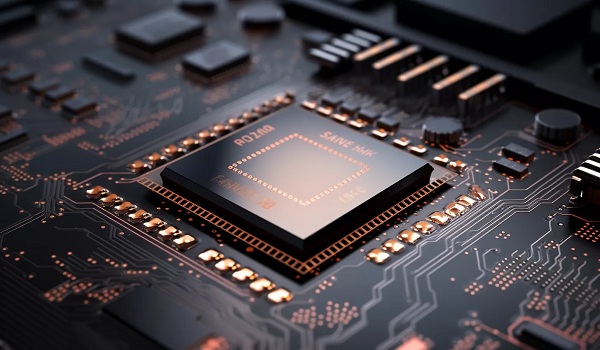Digital University Kerala has introduced State’s maiden silicon-proven Artificial Intelligence (AI) chip—Kairali AI Chip, that offers Speed, Power Efficiency and Scalability for various applications.
Kairali AI Chip
- This chip leverages edge intelligence (or edge AI) to deliver high performance and low power consumption for a wide range of applications.
- Edge artificial intelligence (AI), or AI at the edge, is the implementation of AI in an edge computing environment, which allows computations to be done close to where data is actually collected, rather than at a centralized cloud computing facility or an offsite data center.
- It entails deploying Machine Learning algorithms on the edge device where the data is generated, rather than relying on cloud computing.
- Edge intelligence can provide faster and more efficient data processing while also protecting the privacy and security of both data and users.
Potential Applications
- Agriculture: The chip can enable precision farming techniques by providing real-time monitoring of crop health, soil conditions and environmental factors. This can help in optimizing the use of resources and enhancing the crop yields.
- Mobile Phone: The chip can improve the efficiency and performance of smartphones by enabling advanced features such as real-time language translation, enhanced image processing and AI-powered personal assistants.
- Aerospace: The chip can augment the capabilities of Unmanned Aerial Vehicles (UAVs) and satellites by providing advanced processing power for navigation, data collection and real-time decision-making, all with minimal power consumption. The chip can also enhance the navigation and autonomous decision-making capabilities of drones, which are useful for applications such as delivery services and environmental monitoring.
- Automobile: The chip can be a game-changer for autonomous vehicles by providing the necessary computing power for real-time processing of sensory information, which is essential for safe and efficient autonomous driving.
- Security and surveillance: The chip can enable faster and efficient facial recognition algorithms, threat detection and real-time analytics by using its edge computing capability.
AI chips
- AI chips are built with specific architecture and have integrated AI acceleration to support deep learning-based applications.
- Deep learning, more commonly known as Active Neural Network (ANN) or Deep Neural Network (DNN), is a subset of Machine Learning and comes under the broader umbrella of AI.
Functions
- It combines a series of computer commands or algorithms that stimulate activity and brain structure.
- DNNs go through a training phase, learning new capabilities from existing data.
- DNNs can then inference, by applying these capabilities learned during deep learning training to make predictions against previously unseen data.
- Deep learning can make the process of collecting, analysing, and interpreting enormous amounts of data faster and easier.
- Chips like these, with their hardware architectures, complementary packaging, memory, storage, and interconnect solutions, make it possible for AI to be integrated into applications across a wide spectrum to turn data into information and then into knowledge.
Types of AI Chips Designed for Diverse AI Applications
- Application-Specific Integrated Circuits (ASICs), Field-Programmable Gate Arrays (FPGAs), Central Processing Units (CPUs) and GPUs.
Applications
- AI applications include Natural Language Processing (NLP), computer vision, robotics, and network security across a wide variety of sectors, including automotive, IT, healthcare, and retail.
Benefits of AI Chips
Faster Computation
- Artificial intelligence applications typically require parallel computational capabilities in order to run sophisticated training models and algorithms.
- AI hardware provides more parallel processing capability that is estimated to have up to 10 times more competing power in ANN applications compared to traditional semiconductor devices at similar price points.
High Bandwidth Memory
- Specialized AI hardware is estimated to allocate 4-5 times more bandwidth than traditional chips.
- This is necessary because due to the need for parallel processing, AI applications require significantly more bandwidth between processors for efficient performance.

